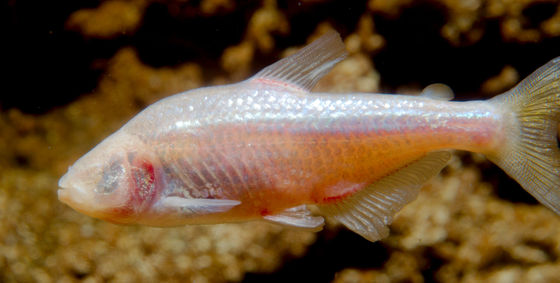Experts say that the evolution of living things never goes back, what is 'regressive evolution' that seems to have reversed evolution at first glance?

Living things have undergone surprisingly complex evolution, such as the eyeballs of animals that can be said to be natural precision cameras, and
Does evolution ever go backward?
https://www.livescience.com/regressive-backward-evolution
According to the scientific news site Live Science, a phenomenon called 'regressive evolution' can cause some living things to undergo changes that seem to revert them to simpler directions in favor of losing complex functions. That's what I'm talking about. But biologists argue that regressive evolution is also part of positive evolution, not backwards.
About this, Professor Beth Okamura , who studies life sciences at the Natural History Museum in London, explained, ``Regressive evolution is the loss of the complex forms acquired by previous evolution.'' One of the most extreme examples of regressive evolution is the myxozoa , fish parasites.

Myxozoa are very simple creatures with no mouth, nerves, or internal organs, and are essentially single-celled organisms. For this reason, for a while after its discovery, it was classified as a single-celled protozoan like Paramecium, but later research revealed that it was a highly degenerated animal. Specifically, Myxozoa was originally a cnidarian, a member of the jellyfish family, but it is said that it evolved from a multi-celled organism to a single-celled organism by stripping off functions that were not necessary for parasitic life. increase.
This phenomenon, at least morphologically, seems to have returned from multicellular organisms to unicellular organisms, but Professor Okamura said, ``It can be said that it has
Professor William Jeffrey , a biologist at the University of Maryland in the United States, agrees that the course of evolution cannot be reversed. For example, some fish living in dark caves have degenerated eyes, but this does not mean that they have returned to their ancestors before the eyes developed. ``These creatures don't have their eyeballs going backwards. I'm here.
In these examples, we tend to focus on noticeable changes, such as the disappearance of some organ or the simplification of body parts, but there are often invisible complexities of function. For example, the cave creature Astyanax mexicanus, sometimes called the ' blind cave fish ', has developed a large number of organs that respond to vibrations, allowing it to perceive its surroundings with agility even in dark environments. have the ability

by Josh More
``One of the reasons evolution doesn't go backwards is that adaptation leads to change. 'The adaptation also affects other genes. Even if one change is then reversed, all other genes must be reversed to say that evolution has reversed.' .
For example, in the case of the aforementioned blind cave fish, eye changes also affected the structure of the skull bones. Therefore, it is believed that even if the gene related to the synthesis of the protein necessary for the formation of the eyes is mutated, the orbit (cancer), that is, the hollow of the skull where the eyeball was housed, will not disappear.
In this way, even if a certain organ disappears due to degeneration, it leads to a loss of the energy cost to create a complex organ, so evolution did not go backwards, but adapted to the ecology as a parasite and the environment such as caves. can be said to be the result. In other words, retrograde evolution is also one of evolution.
Regarding retrograde evolution, Professor Okamura said, ``Evolution is always progressive in that mutations that improve the physical strength of individuals are selected.''
Related Posts:







